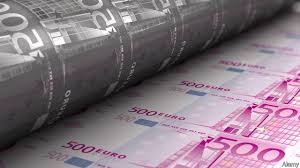After a disastrous year, a whiff of optimism is in the air

ARGENTINA IS FAMED as much for its financial crashes as for its juicy steaks and nifty footballers. But even compared with its usual performance, 2018 was a particularly miserable year for the economy. The worst drought in 50 years wrecked the corn and soyabean harvests, knocking 2% off GDP. The peso lost half its value against the dollar, pushing inflation to 46%. That tipped the country into its second recession in three years and led to a crisis that forced it to seek one of the largest credit lines in the IMF’s history. The approval rating of Mauricio Macri, the president, is at an all-time low. But as the year ends, there are reasons to hope that 2019 will be better.
The crisis of confidence has embarrassed Mr Macri, who was elected in 2015 on a promise to put Argentina’s economy on a firmer footing. In May of this year, with US Treasury yields rising and the dollar strengthening, foreign investors began to yank their money out. Argentina was not the only emerging market to suffer capital flight. Turkey, in particular, suffered too. But Argentina’s wide fiscal and current-account deficits turned a rush for the exit into a stampede. Neither raising interest rates to 40% in May nor securing a $ 50bn credit line with the IMF in June halted the peso’s slide (see chart). In September, following another plunge in the peso, the IMF agreed to increase Argentina’s credit line to $ 57.1bn and accelerate its disbursal.
In return Argentina’s government agreed to balance the budget in 2019, a year earlier than it had previously agreed with the IMF. In November it passed a budget that reduced spending on infrastructure, transfers to provincial governments and subsidies for energy and public transport. It also levied a temporary tax on exports, set to expire at the end of 2020. None of the measures is popular. “We hate them but we need them,” says Nicolás Dujovne, the finance minister. They are intended to eliminate the primary fiscal deficit (that is, before interest payments), which is set to reach 2.7% of GDP this year.
The IMF has also demanded changes at the central bank. At the fund’s behest Guido Sandleris, the bank’s new president, announced in September that he would abandon its discredited inflation targets and instead freeze the expansion of the monetary base. The bank also adopted a floating exchange-rate band, meaning it will limit its interventions in currency markets to when the peso’s value falls outside a certain range. These policies have succeeded in stabilising the exchange rate (a dollar currently buys 37.5 pesos) and curbing inflation expectations, allowing the bank’s benchmark interest rate to fall from a high of 74% in October to 59%.
That should be enough to permit economic growth, which Mr Dujovne expects to return in the first half of 2019. The recovery will be driven by strong soyabean and corn harvests, he predicts. An increase in grain exports will provide a stream of hard currency, narrowing the current-account deficit. Sectors that have benefited from the weaker peso, in particular tourism and energy, should contribute to growth, too. As inflation falls real wages should rise, boosting consumption.
All that would be a relief for Mr Macri, who faces a presidential election in October. His populist predecessor, Cristina Fernández de Kirchner, is thought to be considering another presidential run, despite facing six separate federal corruption charges relating to her time in office. The prospect of her return has spooked markets and raised the stakes. Moderate, more appealing, opponents may also decide to stand. Mr Macri must hope that the recovery arrives in time to boost him at the polls.
Plenty could still go wrong. Social unrest is expected in the coming months as unions haggle over pay rises. If the recovery is delayed, or weaker than expected, Mr Macri’s approval ratings could fall further. Another external shock could prompt another bout of capital flight.
“If there’s another economic meltdown Macri will struggle against any candidate,” says Juan Cruz Díaz of Cefeidas Group, a consultancy in Buenos Aires. But Mr Macri’s hopes are not all that rest on how the economy performs in 2019, says Mr Dujovne. “It’s the year that defines Argentina’s long-term future.”
This article appeared in the Finance and economics section of the print edition under the headline “Annus horribilis”



